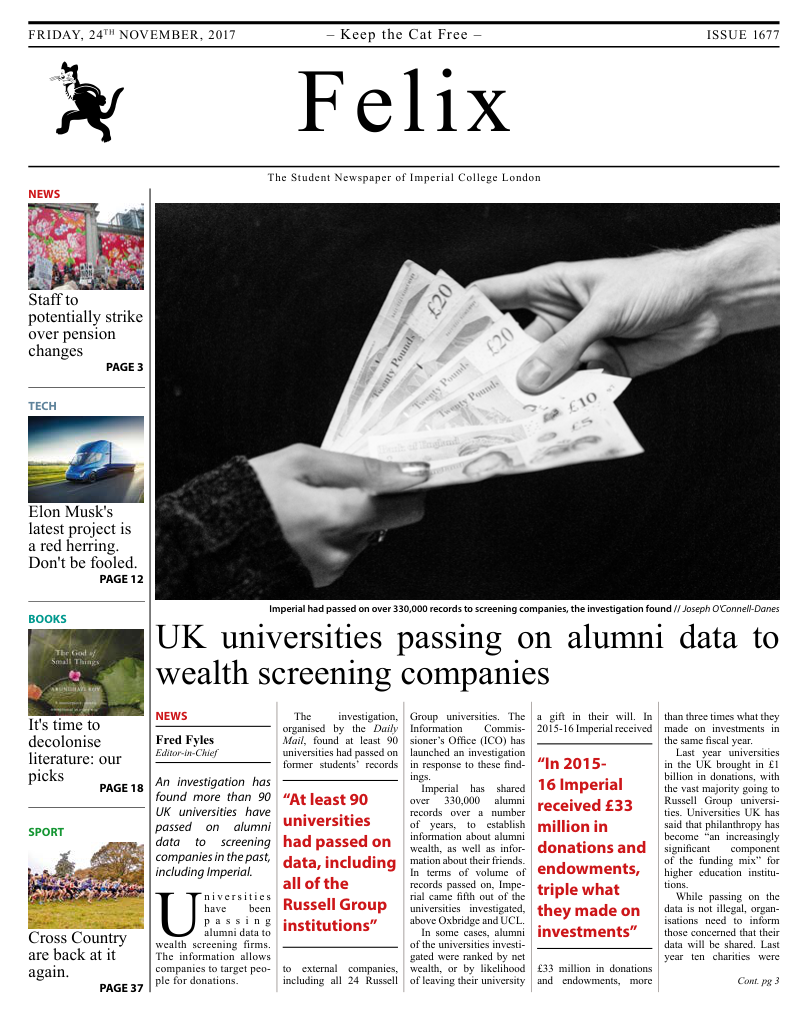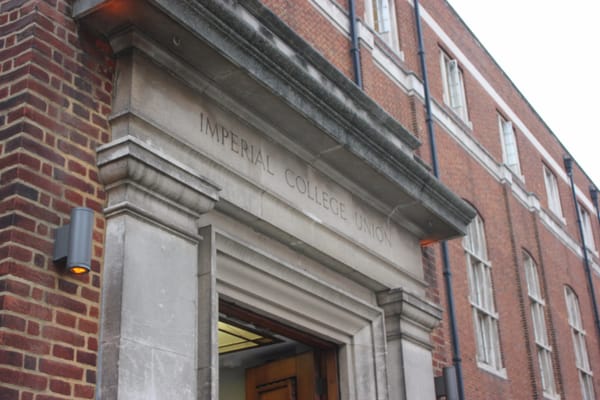Imperial graduates among top earners, study finds
The study found that Imperial graduates commanded the second-highest average salary five years after graduating

Imperial College London graduates on average have among the highest salaries of UK graduates five years after graduation, new research shows.
The analysis, carried out by the Institute for Fiscal Studies (IFS) on behalf of the BBC, found Imperial graduates earned on average £42,050 five years after graduation, making them the second highest-paid graduates in the country, just below those from LSE. Imperial graduates earned more than graduates of the Universities of Cambridge and Oxford, and University College London.
Graduates from Russell Group universities earned £33,500 five years after graduation. The median income in the UK is approximately £21,000.
These data could be explained by the subjects on offer at Imperial: graduates of STEM subjects such as mathematics and engineering were among the highest paid following graduation. Medicine and dentistry were the highest paying degrees, on average, with graduates earning an average of £46,700 five years after leaving university. However, due to the length of such courses, these graduates face high student debt after they leave university: a study in the British Medical Journal found that, even with high salaries, doctors were unlikely to be able to pay off their entire debt before it was written off. Subjects which graduates earned the least following graduation included creative arts and design, agriculture, and mass communications.
“Imperial graduates earned on average £42,050 five years after their graduation”
The study also found differences between male and female graduates, as well as between graduates of different social class: male graduates earn more right out of university, with salaries £1,500 higher than their female counterparts. This gap widens as time goes on, with the difference increasing to £3,500 five years after graduation.
The author of the study stated some of this could be explained by subject choice, with female students more likely to pick courses such as creative arts, which have a lower earning potential, while male students were more likely to pick STEM subjects. On average, Imperial admits roughly twice as many male A-level students as female. However, they concluded that the difference could not be explained away by personal choice.
Students from more affluent families also earned higher salaries after graduation, with male graduates from high-income households earning 20% more than peers from lower-income households. Even between those studying the same subject at the same university, there was still a 10% gap in earnings. The authors of the study said that this showed that “improving access to university alone is not enough to address issues of social mobility”.










